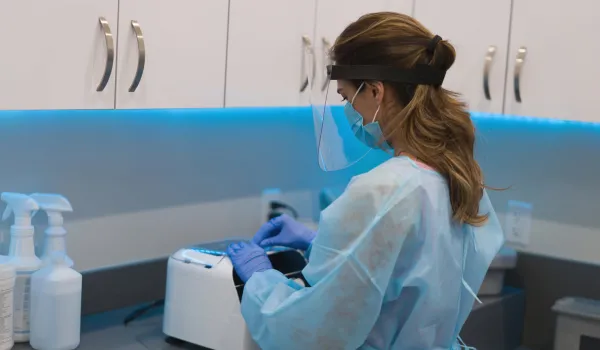Concorde Staff

Did you know that approximately 71 million Americans will be age 65 or older by the year 2030, according to the U.S. Census Bureau? Doctors and nurses across all health care settings need more help than ever caring for the aging Boomer population.
Because one of the primary duties of a licensed vocational nurse (LVN) is tending to a patient's physical comfort, personal hygiene, and emotional well-being, superior communication skills are essential.
Here are some reminders to help you form therapeutic and authentic connections with your elderly patients.
DETERMINE THE PREFERRED FORM OF ADDRESS
Set a respectful tone immediately by asking your patients what they would like you to call them. After a bond of trust is formed, they may enjoy hearing you use terms of endearment, but initially that degree of familiarity may be off-putting.
BE PATIENT AND PRESENT
Many elderly people already worry that they take too much time and attention from others, causing them to hold back their true needs. Don't be rushed or distracted when you are caring for your patients.
Let them know that caring for them is the most important thing you have to do in that time period by giving them undivided attention.
BE AN ACTIVE LISTENER
Face your patient directly when possible and acknowledge your patient when he/she is speaking by nodding your head or using short responses, such as "of course" and "I understand." Repeat words back every so often to validate concerns and indicate that you heard and understood them.
MAINTAIN EYE CONTACT
Eye contact is a powerful form of nonverbal communication that demonstrates you are present and engaged.
Because almost 50 percent of seniors age 65 and over have at least one major eye impairment, sitting face-to-face when possible helps them see you better and read your lips if there is also some hearing loss.
SPEAK SLOWLY, CLEARLY, AND LOUDLY
The elderly can experience communication challenges due to the decline in memory and slower information processing abilities that come with aging.
Do not shout, but do articulate your words as clearly as possible at a volume that seems comfortable for your patient. Choose simple words and phrases that are easy to understand, especially when explaining medical terms.
CHECK YOUR BODY LANGUAGE
Are you turned toward your patient in a position that indicates availability to his needs? Because so much of your role involves directly touching a patient, be attentive to your patient's comfort level as you bathe and groom, treat bed sores or check vital signs.
As you deliver enemas, empty bedpans, and change soiled bed sheets, realize your elderly patient may feel embarrassment and a loss of dignity, so be extra conscious of projecting a warm, non-judgmental, and caring presence.
Concorde Career College can prepare you for a rewarding career in vocational nursing, allowing you to serve the elderly population in your community through your dedicated service and commitment to their well-being.

Take The Next Step Towards a Brighter Future
We have a Concorde representative ready to talk about what matters most to you. Get answers about start dates, curriculum, financial aid, scholarships and more!



